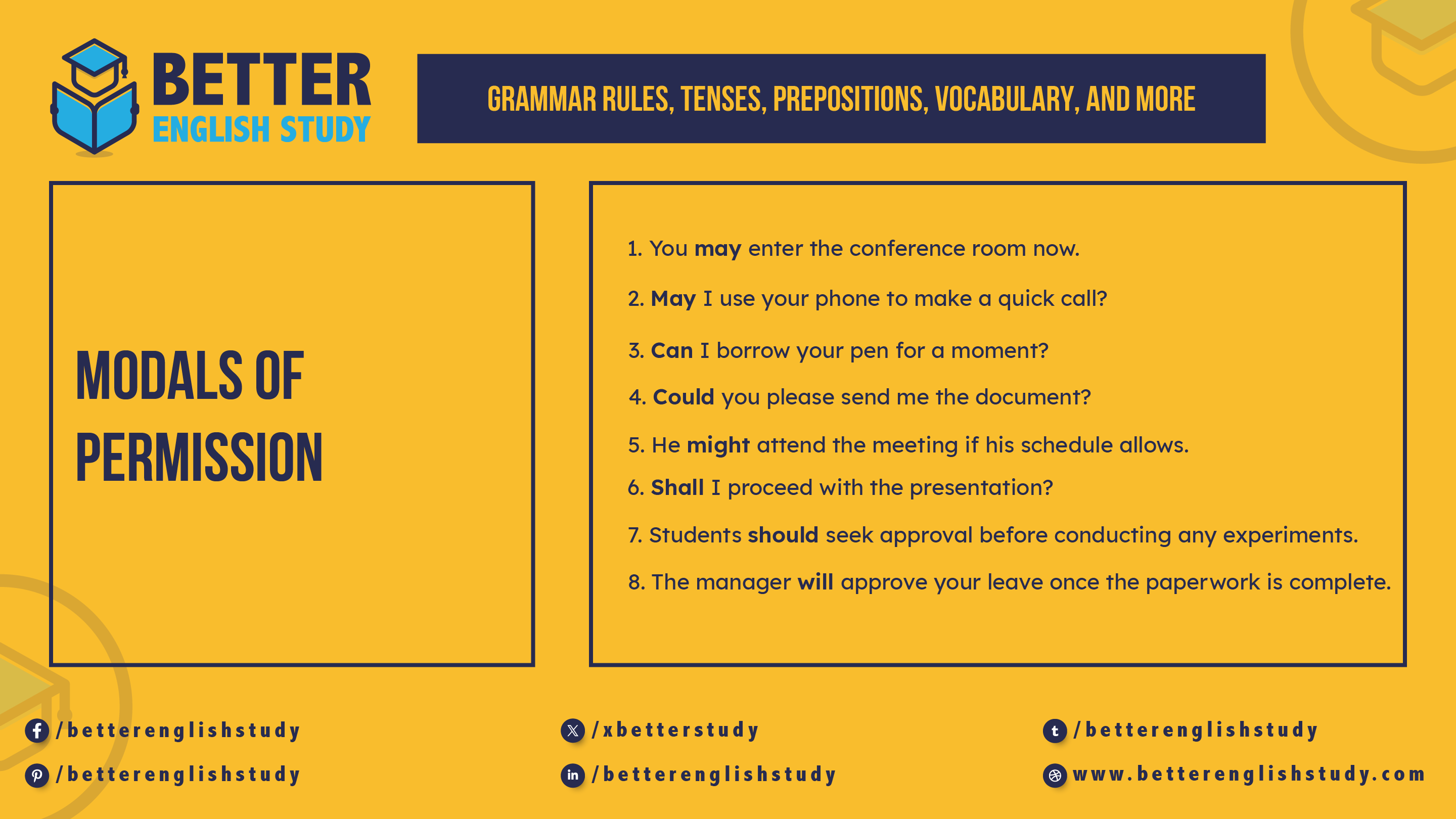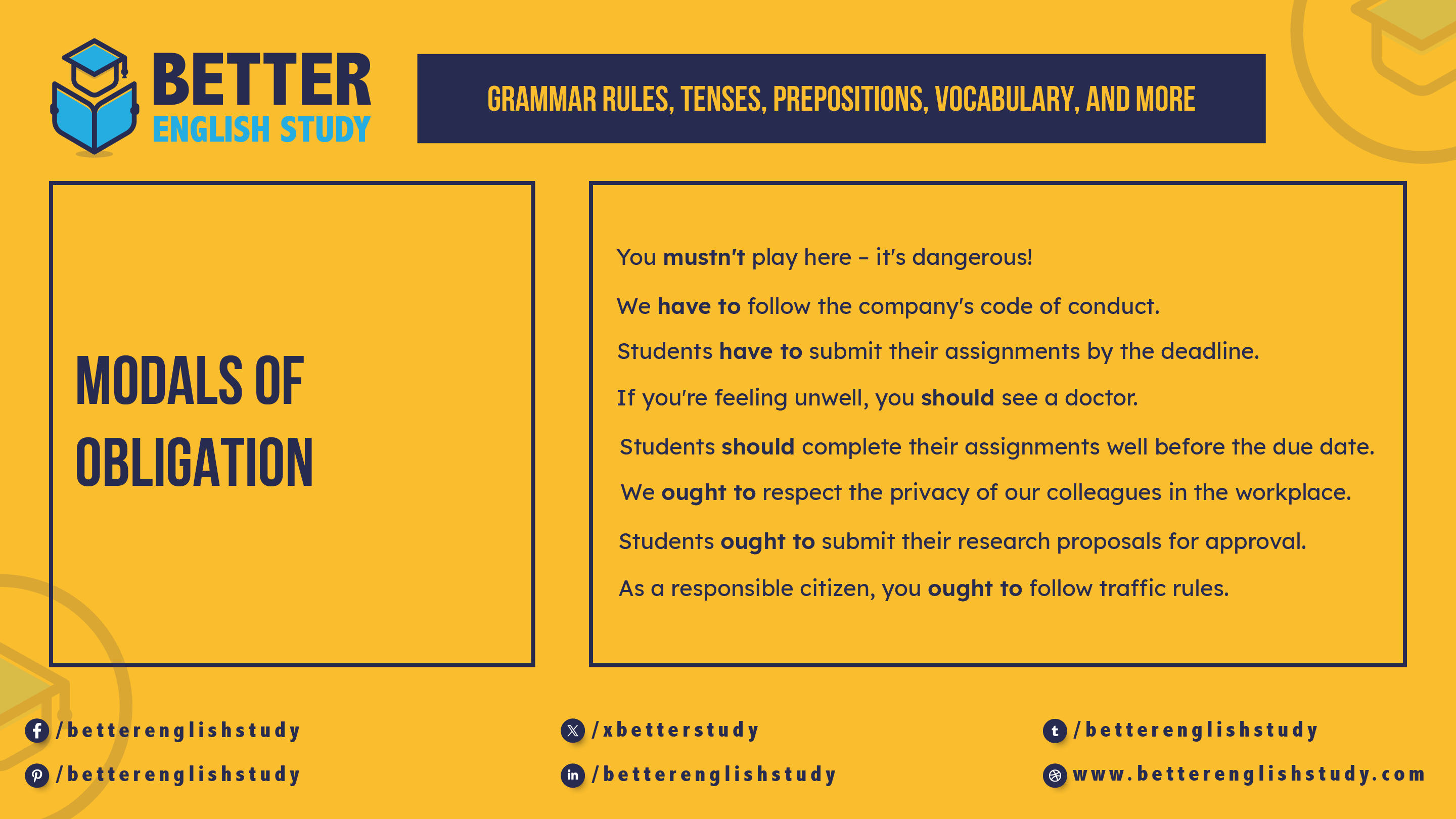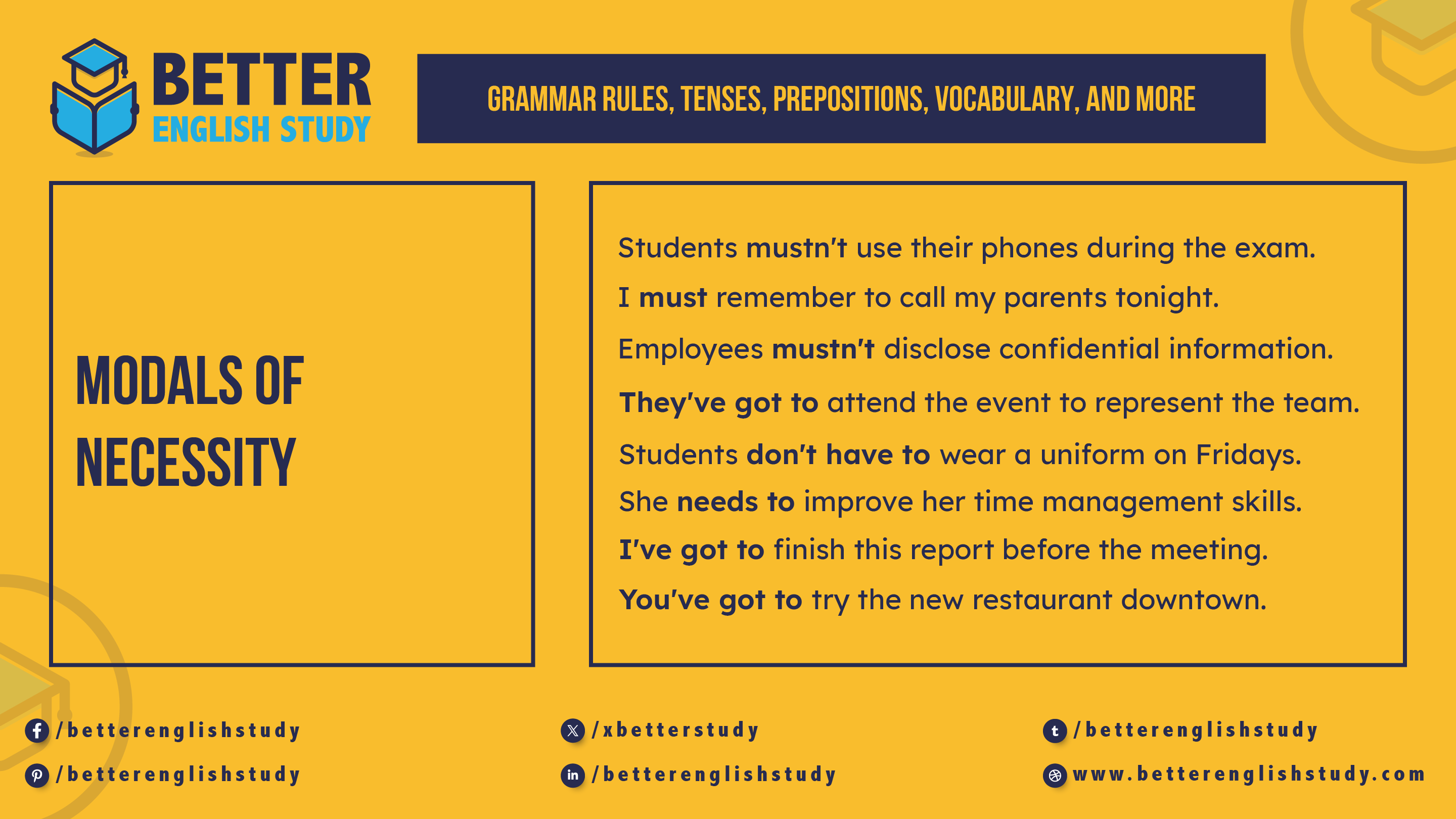Modals of Permission with examples
In the realm of language, communication thrives on the ability to convey permissions gracefully. Modals of permission, a subset of modal verbs, serve as linguistic keys, unlocking the doors to granting consent or allowing actions. In this comprehensive exploration, we will navigate the nuances of modals such as ‘can,’ ‘could,’ ‘may,’ ‘might,’ ‘must,’ ‘shall,’ ‘should,’ …



